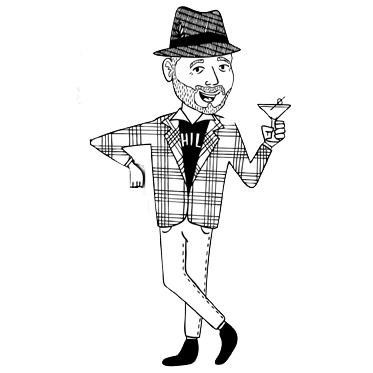 For the past few days, there has been lots of talk about flash mobs. Some of it has been constructive, but most of it idiotic drivel. And my question is: is this thing being blown a bit out of proportion? As far as I can tell, the end result of the flash mob on Saturday was one fight. Thousands of people descend on South Street, and the end result is one fight. There was almost a fight at Quizzo Bowl. And yet there are all these people posting on Philadelphiaspeaks that we need to call in the dogs, that the city is seized by fear, and that they are thinking about moving out of the city.
For the past few days, there has been lots of talk about flash mobs. Some of it has been constructive, but most of it idiotic drivel. And my question is: is this thing being blown a bit out of proportion? As far as I can tell, the end result of the flash mob on Saturday was one fight. Thousands of people descend on South Street, and the end result is one fight. There was almost a fight at Quizzo Bowl. And yet there are all these people posting on Philadelphiaspeaks that we need to call in the dogs, that the city is seized by fear, and that they are thinking about moving out of the city.
A bunch of teens descended on South Street. I suspect that most of them were doing the exact same thing you did when you were 16: looking for the party. The party was on South Street. They went. Yes, it was on a public street, and therefore it is a public nuisance, but it’s not exactly the biggest problem in Philly right now, only the latest fad in things to be horrified by. (H1N1, anybody?)
Of course, when you have any large crowd, you’re going to have a few bad apples who were raised by wolves and they are going to spoil the fun for everyone else (ever been to an Eagles game, folks?) That is the problem with flash mobs, and I understand the fear that eventually someone is going to get shot. I’d be all for a return to mounted police on South Street for crowd control, and I hope that these things are broken up more quickly in the future.
Yes, there have been big fights at previous flash mobs, and innocent people have gotten hurt. But again, there are numerous fights at every single Eagles game and it doesn’t seem to be a major cause for civic concern. I suspect that 98% of the kids out on South Street on Saturday night were merely exercising their right to go where-ever all the members of the opposite sex were, not looking for trouble.
As for a simple act of civil disobediance such as holding up traffic on a street where everyone in their right mind knows not to drive on Saturday night anyway, well, it doesn’t really signal the apocalypse for me, especially since it broke up peacefully as soon as the cops showed up.
Is it a bit scary when a large group of teenagers congregate without any sense of order? Sure. But I think that a couple of officers with a twitter account could nip these things in the bud pretty quick, and once the kids realize that their mobs will always be greeted by police, it’s going to be seen as a waste of time and get old quick. And then us old white folks can go back to complaining about the important things, like that dumbass Cliff Lee trade.




